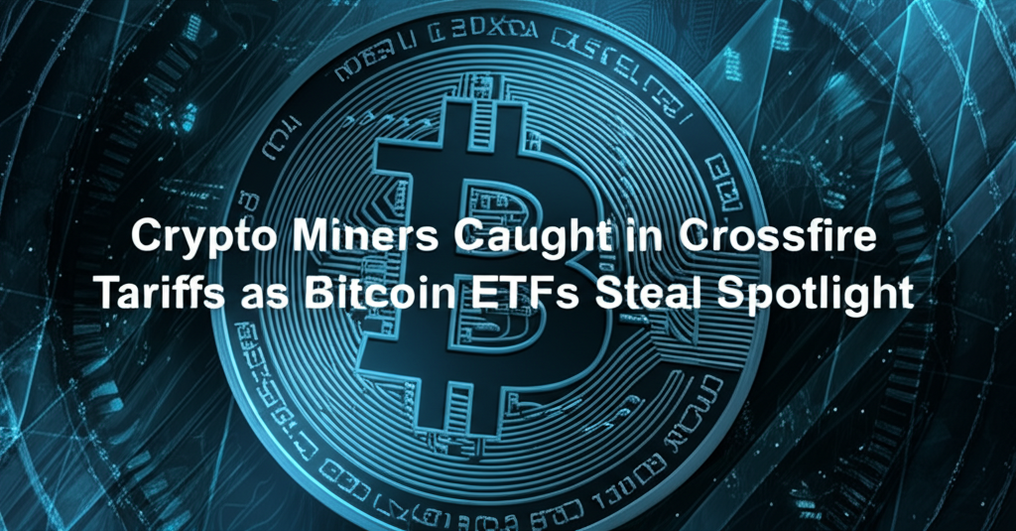Crypto Miners Caught in Crossfire: Tariffs Bite as Bitcoin ETFs Steal Spotlight

United States crypto miners are navigating a precarious landscape, squeezed by significant operational cost increases and intensifying competition for investment capital, a recent analysis by investment management firm Bitwise highlights.
With American firms estimated to control around 40% of the global Bitcoin hashrate, the sector is grappling with import duties ranging from 24% to 46% on essential mining hardware sourced from countries like Vietnam, Thailand, and Malaysia. This financial strain coincides with historically low profitability levels, as measured by hashprice, according to the Bitwise research.
[Bitcoin miners face mounting pressure from equipment tariffs and ETF demand: Bitwise – 1]
The challenge extends beyond rising costs. The growing popularity of spot Bitcoin exchange-traded funds (ETFs) and corporate treasury acquisitions of BTC presents a formidable rival for investor attention and funds. Financial analysts André Dragosch and Ayush Tripathi point out this shift creates a difficult environment for digital asset mining operations.
Investment vehicles like ETFs allow market participants to gain Bitcoin exposure more directly and often perceived with lower operational risk compared to investing in mining infrastructure. Bitwise stated, “These firms can accumulate BTC using low-cost equity issuance or convertible debt, offering investors immediate exposure to price appreciation without the operational risks of mining. This crowds out miners, who must finance heavy upfront capital expenditures, navigate uncertain regulatory terrain, and wait months or even years for their investment to pay off.”
Despite the headwinds, some industry players are actively adjusting their strategies. Miner Bitfufu is exploring relocation options to Ethiopia, while Bitdeer is focusing on expansion in Norway and Bhutan. Major US-listed miners like Riot and CleanSpark mitigated some initial tariff effects by fast-tracking equipment deliveries before deadlines.
Nevertheless, the near-term outlook remains challenging. The combination of high import costs and diverted capital suggests crypto miners are bracing for continued pressure, the Bitwise analysis concluded.
